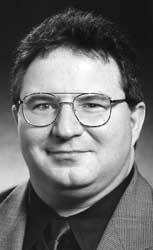Whether measured by annual revenues, number of employees or the market value of property holdings, the nonprofit sector has grown dramatically in recent decades. Indeed, it has grown faster than either the public sector or the business sector.
Today, with over a trillion dollars a year in revenues, hundreds of thousands of nonprofit organizations of all sorts and sizes qualify under federal, state and local laws for multiple tax benefits. Nonprofit organizations pay no property taxes. Their donors may get federal tax deductions. Their members (like students at private colleges) may get tax-funded grants or vouchers (like loans to pay college tuition). And their leaders may apply for government aid or compete for government contracts to fund employees’ salaries or to cover certain operating expenses.
As the fiscal crisis, which first showed itself in 2007, continues, ever more federal, state and local policymakers in both parties are asking tough but timely questions about the nonprofit sector: How much does it lighten local property tax coffers and reduce federal tax revenues? What is the total tab for all the tax-funded subsidies? And what does the wider public actually get in return for all the tax breaks and government funding?
Studies are underway, but nobody knows for sure what the results will be. Yet no matter what the research ultimately shows, public pressure for accountability will continue to grow as more media attention is focused on corruption scandals involving nonprofits and as the public sees and hears more about nonprofit executives who make really big bucks (like the many private university presidents with million-dollar-plus annual compensation packages).
Already some city governments have experimented with payment in lieu of taxes or so-called PILOT arrangements, by which properties owned by large nonprofit organizations are taxed at a rate higher than zero but lower than the same properties would be taxed were they owned by a for-profit firm. And at the federal level, nonprofit hospitals in particular have come in for ever-greater scrutiny of their balance sheets, executive pay and service to low-income communities.
Grandstanding politicians and sensationalizing journalists can quickly turn legitimate concerns about accountability or performance into a three-ring circus. But, putting that prospect to one side, do nonprofit leaders have more to hope or to fear from calls demanding that they justify their tax-exempted properties and tax-subsidized personnel or programs?
At least where most Catholic nonprofit organizations are concerned, I would say there should be hope: Catholic nonprofit organizations are second to none when it comes to predictably and reliably producing benefits for nonmembers, wider communities and the public at large.
In my home archdiocese of Phila-delphia, for instance, Catholic hospitals dot the cityscape and serve many poor people who are not Catholic. Catholic Health Care Services encompasses skilled nursing homes, assisted living facilities and more. Catholic Social Services helps over 250,000 people a year in soup kitchens, shelters for the homeless and schools for developmentally disabled children. Catholic Community-Based Services runs adoption and foster care programs, staffs senior community centers and supplies immigration services. Catholic elementary schools, after-school programs, high schools, colleges and universities educate tens of thousands, including many low-income people who are not Catholics.
And that local list just scratches a surface beneath which are several Catholic religious orders and networks that benefit their needy non-Catholic neighbors—preschoolers, battered women, ex-prisoners and others.
What would it cost Uncle Sam, nationally, to replace just the social services supplied by Catholic nonprofit organizations to non-Catholics? I am in the early phases of research on this “civic replacement value” question, but already this much of the answer seems clear: certainly no less, and possibly far more, than these Catholic organizations receive in tax exemptions and subsidies.
Indeed, if all Catholic institutions in America suddenly shut down next Monday, some Catholics might not notice till the following Sunday, but millions of needy non-Catholics would notice at once.









The social services provided by the Church could not be replaced by the government. The Church helps people for reasons very different from those that motivate or could ever motivate the government, and that fact makes an essential difference in the quality of that help.
Caveat. I'm aware of at least one "Catholic" nursing home that seems to be run independently of the Church. The care in this home is substandard. To the extent that this sort of thing is common, it would be easy for the government to replace it.
Perhaps it would be instructive for every US diocese/archdiocese to be able to put into solid dollar figures how much their social service agencies-Catholic Community Services, hospitals & medical clinics, schools, foodbanks, St. Vincent de Paul direct services & thrift stores, individual parish discretionary funds, etc. pump into the local economy. And what it would cost cash-strapped municipalities, counties & states to replace these services. I bet most civic officials-especially various treasurers-would be cowering under their desks at the replacement costs!
The fed just printed 2 trillion worth of that paper. What is a Federal Reseve Bank note worth? It belongs to the Federal Reserve.
I feel that that the people who help their brothers and sisters will have the true value measured elsewhere .